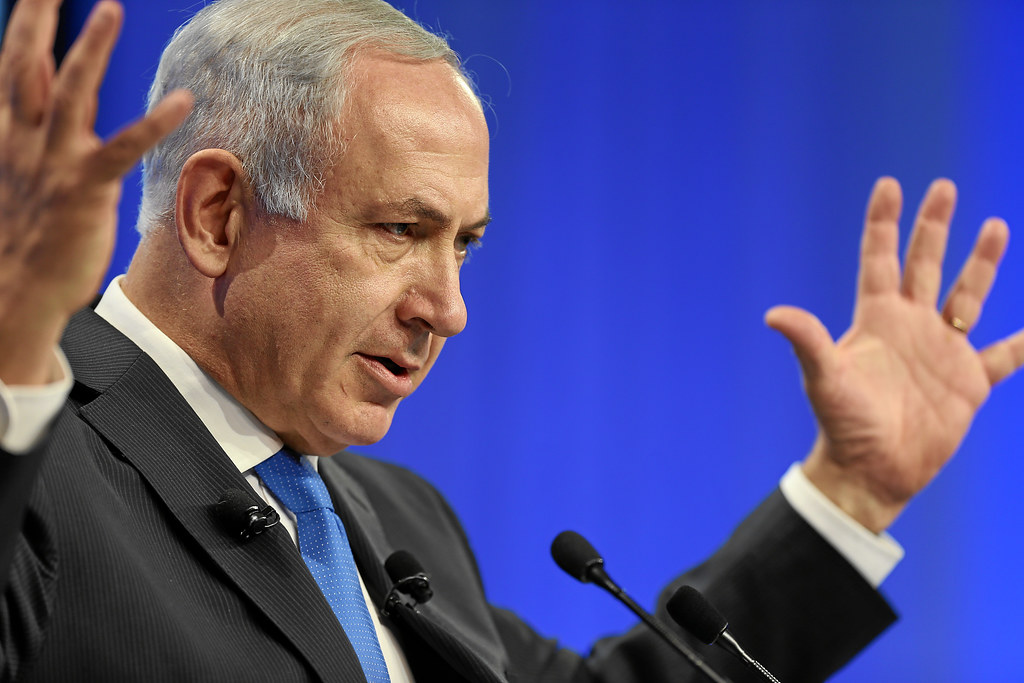At least 137 journalists are among 32,845 Palestinians killed by Israeli occupation forces since the beginning of the war.
Israeli lawmakers passed a bill on Monday paving the way for a ban on Al Jazeera and other foreign news networks considered by the occupation as a “security risk”.
This move grants the government the authority to halt Al Jazeera’s broadcasts in Israel.
Israeli Prime Minister Benjamin Netanyahu had pushed for the Knesset to pass the bill, and has vowed to “immediately act to close Al Jazeera,” according to AFP.
The law went through by 70 votes to 10, granting authorities the ability to shut down the offices of foreign media outlets in Israel.
Shortly after the Israeli parliament passed the bill, the prime minister celebrated the law’s enactment on social media, and said that Al Jazeera would “no longer broadcast from Israel.”
“The terrorist Al Jazeera channel will no longer broadcast from Israel, and it is time to expel the Hamas mouthpiece from Israel,” said Netanyahu, according to Al Jazeera.
Meanwhile, White House spokeswoman Karine Jean-Pierre expressed concern over Netanyahu’s call to stop Al Jazeera’s operations in Israel.
“We believe in the freedom of the press. It is critical. It is critically important, and the United States supports the critically important work of journalists around the world, and that includes those who are reporting in the conflict in Gaza,” Jean-Pierre told reporters.
“So we believe that work is important. The freedom of the press is important. And if those reports are true, it is concerning to us.”
The Committee to Protect Journalists (CPJ) condemned the move, warning that it could stifle international media and foster self-censorship, saying this bill give Netanyahu’s government “the authority to shut down any foreign media outlets operating in Israel, posing a significant threat to international media”.
“This contributes to a climate of self-censorship and hostility towards the press, a trend that has escalated since the start of the Israel-Gaza war,” the CPJ said.
Leader of the United Arab List (UAL) Mansour Abbas argued within the Knesset that Israel stands to benefit from Al Jazeera’s ongoing broadcasting.
Al Jazeera has been on the receiving end of attacks by Israel, particularly since the beginning of the brutal onslaught in Gaza on October 7, 2023, for its detailed coverage on the ground.
On October 18, Israel’s attorney general reportedly approved a ban on Al Jazeera’s local bureau before it backtracked on its decision the following month over Qatar’s key role in mediating the release of captives from Hamas in Gaza.
Qatar, the host of a Hamas political office, has been playing a crucial mediating role to release captives from Hamas and reach a ceasefire in Gaza.
Doha and Cairo had mediated a week-long truce between November 24 until December 1 that led to the release of at least 110 Israeli and foreign captives from Gaza. However, talks have stalled since the truce expired.
The latest round of talks in Cairo has also made no breakthrough, sources told Al Jazeera on Monday.
Attacks on Al Jazeera’s staff
Israel’s attacks on Al Jazeera have intensified over the past six months, with occupation forces targeting the network’s staff and their families as they provided details of the massacres in Gaza.
On October 25, 2023, Israel killed four members of prominent Al Jazeera journalist and Gaza bureau chief Wael Dahdouh’s family.
Israel killed Dahdouh’s wife, 15-year-old son, seven-year-old daughter and infant grandson in a strike in the south, despite Israel announcing the area to be a safe zone before the attack.
Dahdouh, now in Doha, then survived a missile strike on December 15 in Khan Younis, where Al Jazeera’s cameraman, Samer Abu Daqqa, succumbed to his injuries after being left to bleed for six hours.
Israeli forces prevented medics from reaching him with nonstop shelling and the ambulances had to receive prior approval to reach Abu Daqqa.
Israel then killed Dahdouh’s eldest son, Hamza, on January 7 in a direct missile strike that targeted a car with journalists in Khan Younis, southern Gaza.
Israel’s military was quick to justify the attack by claiming that it “identified and struck a terrorist who operated an aircraft that posed a threat” to its troops, referring to the drone that Thurayya was operating.
A probe by the Washington Post on March 19 dismissed Israel’s allegations.
On March 18, Israeli forces beat up and arrested Al Jazeera’s correspondent Ismail Alghoul during the deadly raid on the Al-Shifa Hospital in Gaza City. Occupation forces released Alghoul while proceeding to kill and detain more civilians during the two-week raid.
Occupation forces withdrew from the hospital on Monday overnight after reducing it to ashes while running over the bodies of civilians with their tanks.
More harrowing killings of Al Jazeera’s staff and their families were reported last year.
On October 19, Israel killed 19 family members of Al Jazeera Arabic’s broadcast engineer, Mohamed Abu Al-Qumsan, during a massacre at the Jabalia camp in northern Gaza.
Then on December 6, Israel killed 22 family members of Al Jazeera Arabic’s correspondent, Moamen Al Sharafi, in another attack on the Jabalia refugee camp.
On December 11, Israeli forces killed the father of Al Jazeera journalist Anas Al-Sharif in a strike in northern Gaza, two weeks after occupation forces threatened to target him.
Days later, Israel killed Al Jazeera journalist Abdullah Alwan in Gaza on December 19 in an airstrike that targeted his family’s home in Jabalia.
The targeting of Al Jazeera comes under a wider attempt to stifle journalists’ voices and censor their reporting on the genocidal war.
At least 137 journalists are among 32,845 Palestinians killed by Israeli occupation forces since the beginning of the war.







